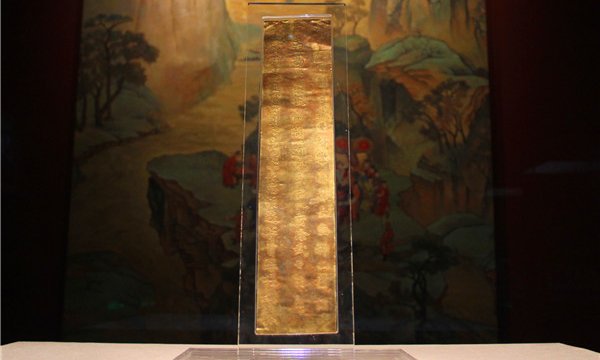
The Golden Pardon of Wu Zetian and the Cultural Roots of Paramount Delivery
Share
🌄 Paramount Delivery | The Golden Pardon of Wu Zetian and the Cultural Roots of Our Wish Service
Throughout Chinese history, communicating with the heavens has been a mystical and profound tradition. From imperial rituals to common folk offerings, the skies and mountains have always been silent listeners to the voices of the people. Among these traditions, the story of Wu Zetian's "Golden Pardon" stands out—not only as a testament to political wisdom but as an example of how ancient people sought peace and redemption through a conversation with the natural world.
👑 Wu Zetian's Golden Pardon | A Dialogue Between the Emperor and the Heavens
In 705 AD, as China's only female emperor, Wu Zetian, lay on her sickbed, she reflected on her life's journey. Her reign had brought prosperity and reform, but also bloodshed and controversy. She understood that her actions—purging political enemies and wielding iron-fisted control—had left many wronged and resentful.
To soothe these grievances, restore social harmony, and perhaps secure her own afterlife blessings, Wu Zetian issued the "Golden Pardon." These golden plaques, engraved with imperial decrees of amnesty, allowed bearers to be forgiven of past crimes. Whether political prisoners, exiles, or ordinary citizens, those who held a golden pardon could start anew.
Imagine those who had lived in shadows, clutching these golden tokens, kneeling in the grand Ming Hall of Luoyang, as sunlight danced upon the golden surfaces. It wasn't merely legal forgiveness but a profound release of the soul. Through the "Golden Pardon," ancient people conveyed their remorse, their unspoken sorrows, and their hidden fears to the boundless sky—trusting that the heavens would listen and absolve them.

⛰️ Modern "Paramount Delivery" | Taking Wishes to the Mountain Peaks
From Wu Zetian’s “Golden Pardon” to the modern wish banners of “Paramount Delivery,” the tradition of speaking to the heavens has never truly disappeared. Today, we may no longer kneel before emperors or exchange gold for forgiveness, but the need to share our deepest thoughts with the natural world remains. Through wish banners sent to mountaintops, people find a sanctuary for their spirits within the vastness of nature.
Climbers embark on steep paths, carrying banners filled with heartfelt wishes to the skies. Whether praying for career success, family harmony, or saying a final farewell to a loved one, every wish is like a letter to the universe. In the golden light of Mount Rainier’s sunrise, or against the majestic backdrop of Mount St. Helens, these wishes merge with the natural world, transforming into whispers of the wind, beams of light, and echoes in the mountains.
🧭 Conclusion | Letting Your Voice Reach the Heavens
From golden plaques to wish banners, the evolution of this tradition reflects humanity’s eternal need to communicate with the universe. Across centuries, people have believed in a mysterious power between heaven and earth—one that listens to stories too delicate to share with the world.
“Paramount Delivery” builds a bridge for these stories. It allows wishes to be carried to the peaks, where they can be scattered by the wind and illuminated by the morning sun. Instead of struggling to find understanding among people, why not let nature hold your secrets? Amidst the vastness and compassion of the natural world, we can finally find peace and redemption.

